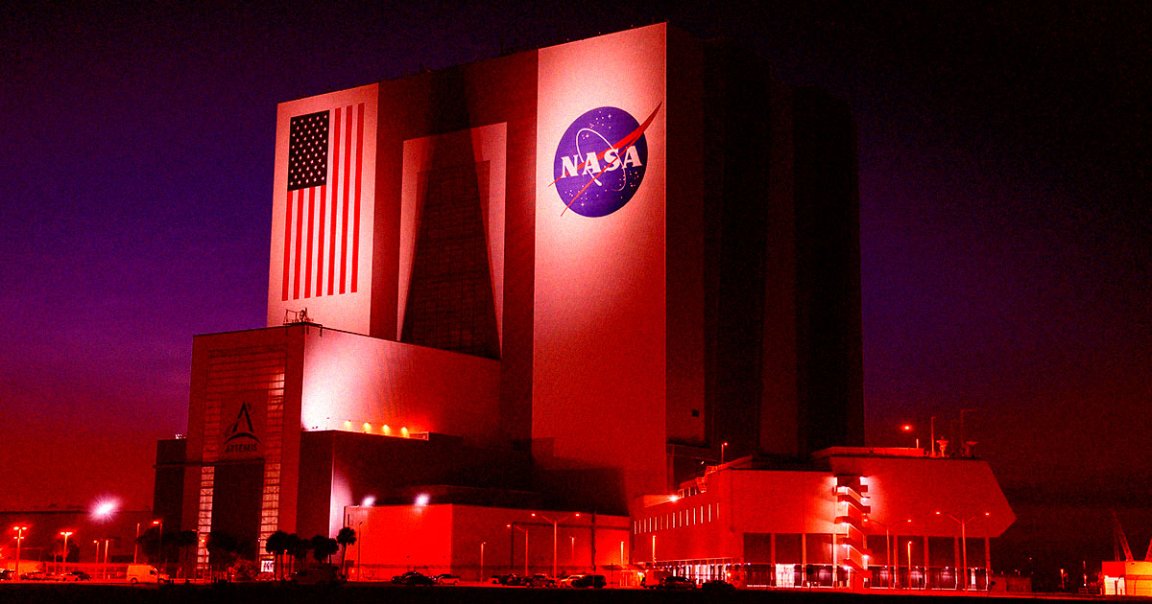
The Trump administration is planning to cut NASA’s science budget nearly in half, according to an early budget proposal to Congress.
As the Washington Post reports, NASA’s Science Mission Directorate’s current $7.3 billion budget could be cut down to a mere $3.9 billion.
While the proposal has yet to be formally submitted to Congress, the slashed budget would deal a devastating blow to the space agency’s ongoing and future missions, including its next major space telescope and Mars Sample Return mission.
NASA’s $2.2 billion Earth Science budget would be more than halved under the budget proposal, while planetary science would drop from $2.7 billion to $1.9 billion.
It wouldn’t just be a major step back; the move could prove to be counterintuitively expensive.
“This is an extinction-level event for NASA science,” said space advocacy group Planetary Society chief of space policy Casey Dreier in a statement. “It needlessly terminates functional, productive science missions and cancels new missions currently being built, wasting billions of taxpayer dollars in the process.”
“This is neither efficient nor smart budgeting,” he added.
The latest budget doesn’t include funding for NASA’s Nancy Grace Roman Space Telescope, the follow-up to its groundbreaking Hubble and Webb space telescopes, which would continue to be funded under the proposed budget.
That’s despite the development of the telescope already being well underway. Hardware is already being tested at NASA’s Goddard Space Flight Center, per WaPo. It’s currently scheduled to be launched as early as September 2026.
It’s important to note that the Trump administration’s budget proposal is far from being set in stone. It’s an early draft, called a “passback,” ahead of Trump’s full 2026 fiscal year budget request.
In other words, Congress can still stop NASA’s science program from being set ablaze.
“NASA has received the fiscal year 2026 budget passback from the Office of Management and Budget and has begun the deliberative process,” the agency wrote in a statement.
Unsurprisingly, former NASA leaders are appalled at the mere suggestion of cutting the Science Mission Directorate nearly in half.
“They’re going to run NASA into a very deep ditch if they proceed with this kind of savagery,” former NASA administrator Bill Nelson told WaPo.
Nelson also argued that the proposed budget could deal a devastating hit to Trump’s signature space exploration program. Both the president and his top henchman Elon Musk have repeatedly vowed to take astronauts to the surface of Mars.
Though Musk has tweeted repeatedly since the budget came out, he’s had nothing to say about its slash-and-burn attack on NASA.
“If you savage NASA science, you have savaged our entire exploration program, and that will affect the human exploration program as well,” Nelson told the newspaper.
Apart from shocking former NASA leads, Congress will likely have plenty of bones to pick if such a budget were to be proposed.
Representative Zoe Lofren (D-CA), top member of the House Science, Space, and Technology Committee, eviscerated Trump’s approach.
“Effectuating these absurd cuts would destroy NASA’s ability to carry out its fundamental objectives, cut off their societal benefits, and spell catastrophe for the U.S. Earth and space science enterprise by throwing billions in already-made taxpayer investments into the trash heap,” she said in a statement.
“I will do everything in my power to ensure these reckless proposals never come to fruition,” she added.
“This massive cut to NASA Science will not stand,” representative George Whitesides (D-CA) told Ars Technica. “I will work alongside my colleagues on the Science Committee to make clear how this would decimate American leadership in space and inflict great damage to NASA centers across the country.”
“I think there’ll be very strong bipartisan resistance in Congress to cutting missions that are the foundation of our space program,” senator Chris Van Hollen (D-MA) told the WaPo. “This is like eating your seed corn, and it will have very damaging impacts on our space program, on national security programs, and it will undermine our leadership in the area of technical innovation and scientific research.”
More on NASA: Incoming Head of NASA Puts SpaceX in Its Place: “They Work for Us, Not the Other Way Around”